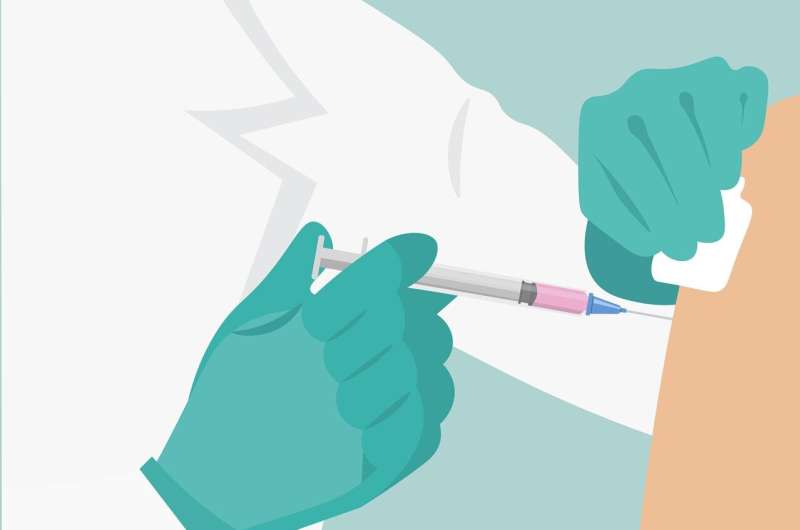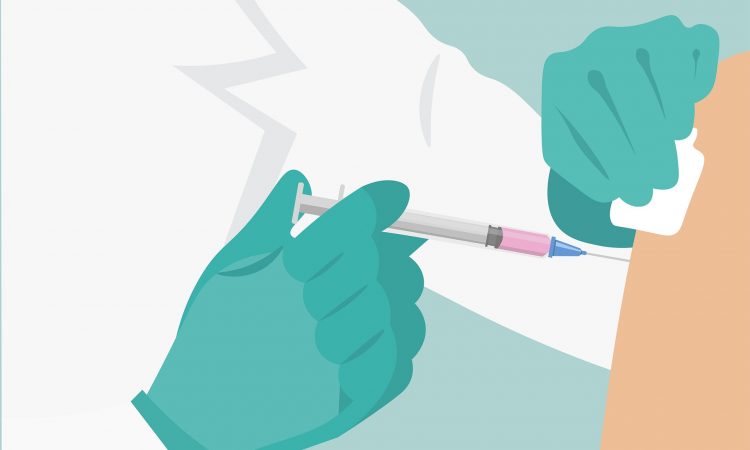
Vaccine hesitancy could be reduced by providing health information in a foreign language, a new study finds.
The study found that when presenting two groups with the same information about vaccines in two different but familiar languages, the use of one language corresponded with a 7 percent higher number of people saying “yes” and a 7 percent lower number of people saying “unsure” when asked whether they intended to get vaccinated.
The research, led by Assistant Professor Janet Geipel from the University of Exeter Business School, and co-authored by doctoral student Leigh H. Grant and Professor Boaz Keysar from the University of Chicago, found that a simple language intervention has the potential to boost vaccination rates, especially among bilingual populations.
The study was conducted in Hong Kong, where many residents are native speakers of Cantonese but also speak English (both are official languages).
Hong Kong was chosen because it provided an ideal case study, with a large bilingual population and a relatively low vaccine uptake rate at the time the research was conducted in March to April 2021.
Researchers provided COVID-19 vaccine information to 611 unvaccinated Chinese Hong Kong residents, with each person randomly assigned to receive the exact same information either in Cantonese or English.
All 611 participants were evaluated to ensure adequate fluency in both languages before being given the information about vaccines.
Participants who read materials about the vaccine in English showed higher willingness to get vaccinated than those who read about the vaccine in Cantonese.
The percentage of people saying “no” when asked if they intended to get vaccinated was about the same in both groups.
Bilingual populations exist all over the world, but the contexts in which the different languages they speak are used—and the mental associations people have with those languages—vary greatly from place to place.
According to the researchers, one language might be associated with more public trust than another—and that’s the language that should be used when communicating about things like vaccines.
The researchers say their larger finding should be thought of not in terms of one case study, but as an illustration of language’s power as a tool for enhancing trust more generally.
They suggest that language choice should be considered as one of many potential interventions that can help drive higher vaccination rates: by thinking about how people are likely to perceive information, public health officials can do a better job of establishing the trust necessary to achieve positive outcomes.
“Seven percentage points might not sound like much, but it is actually huge in the context of interventions,” said Professor Keysar.
“It’s worth doing, because 7 percent of 10 million people, for example, is a lot of people.”
The researchers said that they would expect the same results in any country, provided the choice of language is linked to trust.
Dr. Geipel said: “For example it might be that for first generation immigrant communities in Europe health information provided in their native tongue is more trusted than information in the local language.”
Beyond vaccines, thinking critically about language choice also could potentially be used around the world to provide information in a variety of contexts—like cancer screening—that can help keep people safe and improve lives, according to the authors.
“Both our native language and foreign languages can be powerful,” Dr. Geipel said. “The key here is that language can be used as a tool to promote trust.”
Source: Read Full Article
